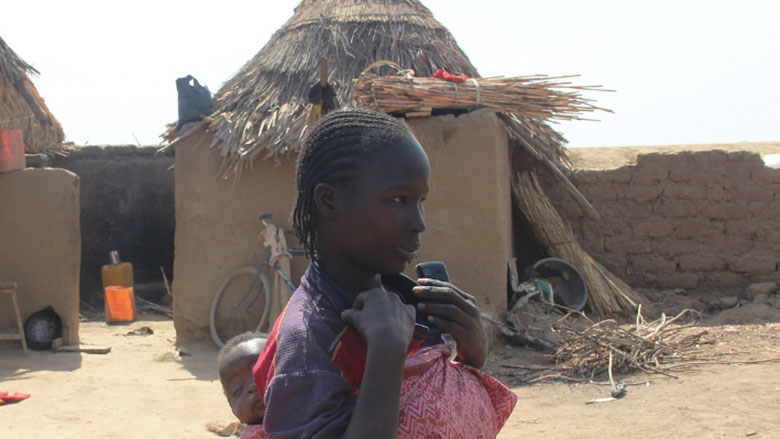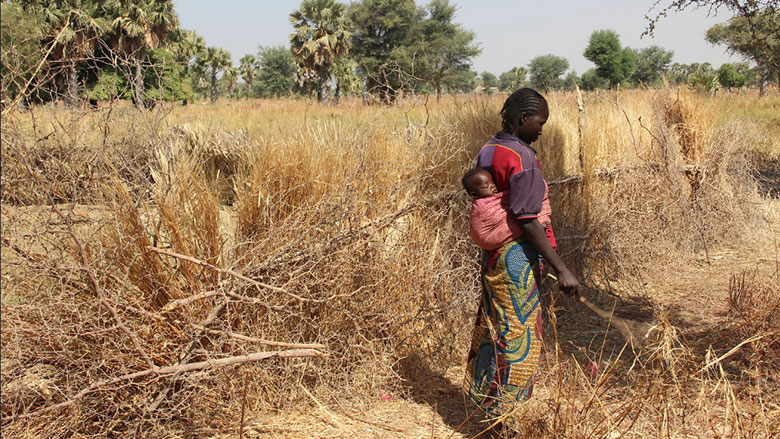YAOUNDÉ, March 6, 2017− The heavy rains are drawing near. For the residents of Pouss, a small village located along the embankment separating the village from the Logone River, rain is synonymous with flooding. This was the case in 2012, when the embankment between the Begue-Palam and Pouss villages collapsed under pressure from the swollen river. Scores of villages were hit hard, and dwellings, crops, and livestock were destroyed or engulfed by the rising waters. The surviving victims were evacuated to the villages of Pouss and Guirvidig.
Fatimatou is 30 years old and has six children. A resident of Pouss, she survived the floods in 2012, but may not be as fortunate if the river overflows its banks again given that her house is located less than 30 meters from the embankment.
To ensure that doesn’t happen, the World Bank is financing a flood emergency project for the Far North region, designed to repair and reinforce the embankment and relocate the communities living less than 30 meters from the embankment. These communities will be relocated prior to the start of works along the embankment. Fatimatou and her family are among the households to be relocated.


